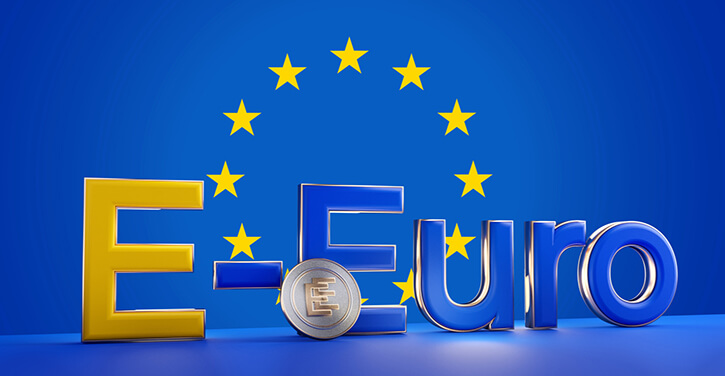
The European Commission (EC) will be working with the European Central Bank (ECB) to look at the potential risks of developing and issuing a Digital Euro
The European Commission and the ECB are partnering to consider the potential downsides of the Digital Euro. The two regulatory bodies will ensure that they cover every angle before the project to develop the Digital Euro kickstarts later this summer.
In a joint statement by the two entities on Tuesday, it was revealed that they would be working together to explore the possibility of issuing a Digital Euro to complement the current cash and payment solutions currently available.
The ECB and European Commission are exploring the possibility of a Digital Euro due to the rapid digitalisation in the payments landscape and the emergence of crypto-assets, the report added.
This partnership will allow the ECB and the European Commission to pursue their efforts to create and foster a healthy and vibrant European digital finance sector. It would also help them promote a well-integrated payments sector to respond to new payment requirements in the continent.
The ECB will decide whether to kickstart the Digital Euro development project this summer following the public consultation last week and a period of preparatory work. The project will address crucial design and technical issues, and provide the European Central Bank with the required tools to issue a Digital Euro.
“The ECB and the European Commission services are jointly reviewing (at a technical level) a broad range of policy, legal and technical questions emerging from a possible introduction of a Digital Euro, taking into account their respective mandates and independence provided for in the Treaties.”
CBDCs pose privacy concerns
According to Euractiv, the ECB closed the public consultation on its plans for the Digital Euro last week, and most of the respondents were concerned about the privacy aspects regarding the Digital Euro. 41% of the respondents expressed concerns over the privacy of payments made with a prospective Digital Euro.
Security is another concern as 17% of the respondents believe the Digital Euro wouldn’t be secure enough. However, Fabio Panetta, the chairman of the task force on a Digital Euro and an ECB executive board member, believes that the Digital Euro would strengthen the resilience of privacy in digital payments.
Earlier this month, ECB President Christine Lagarde stated she expects the Digital Euro to become available in less than five years.

